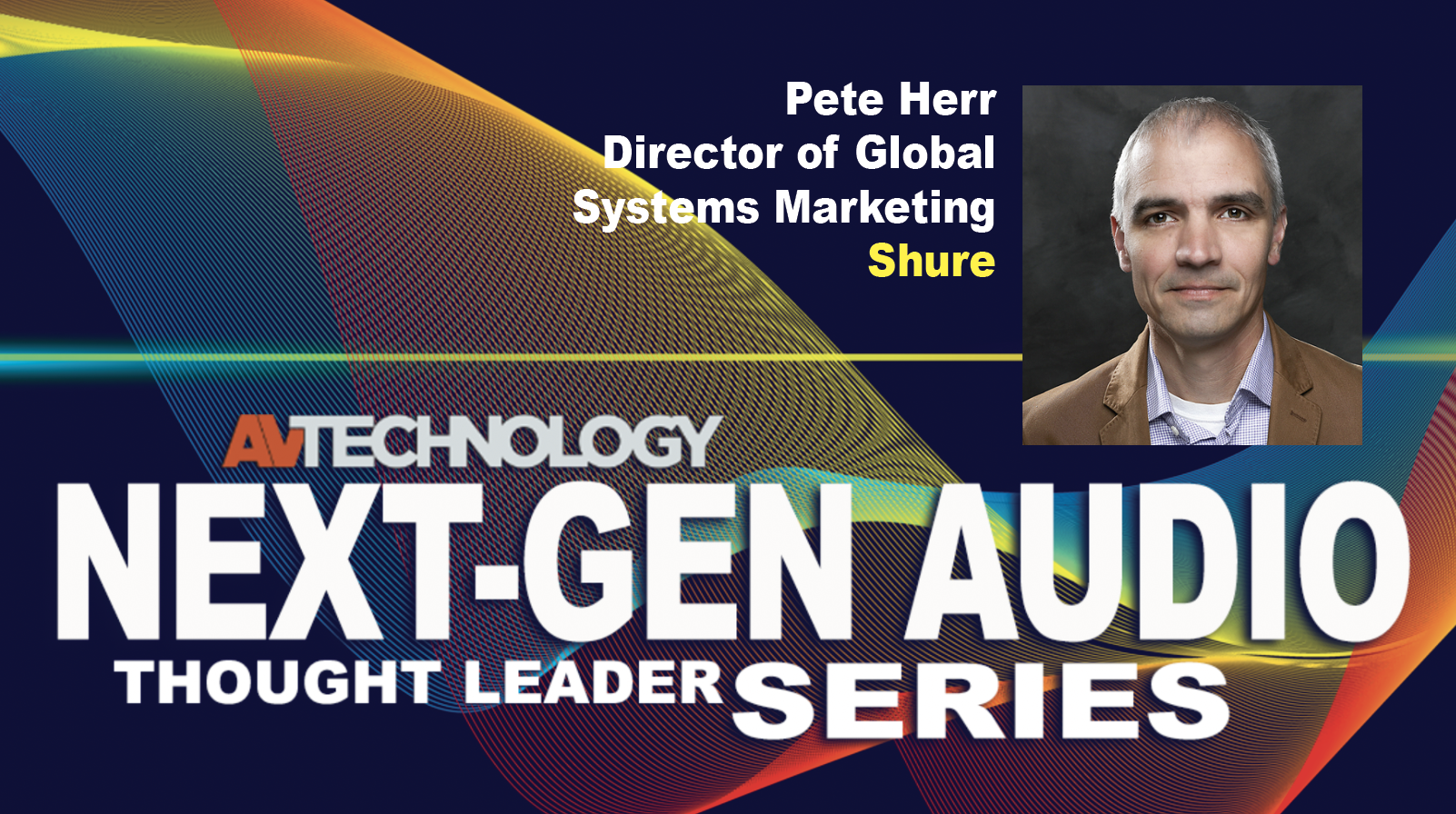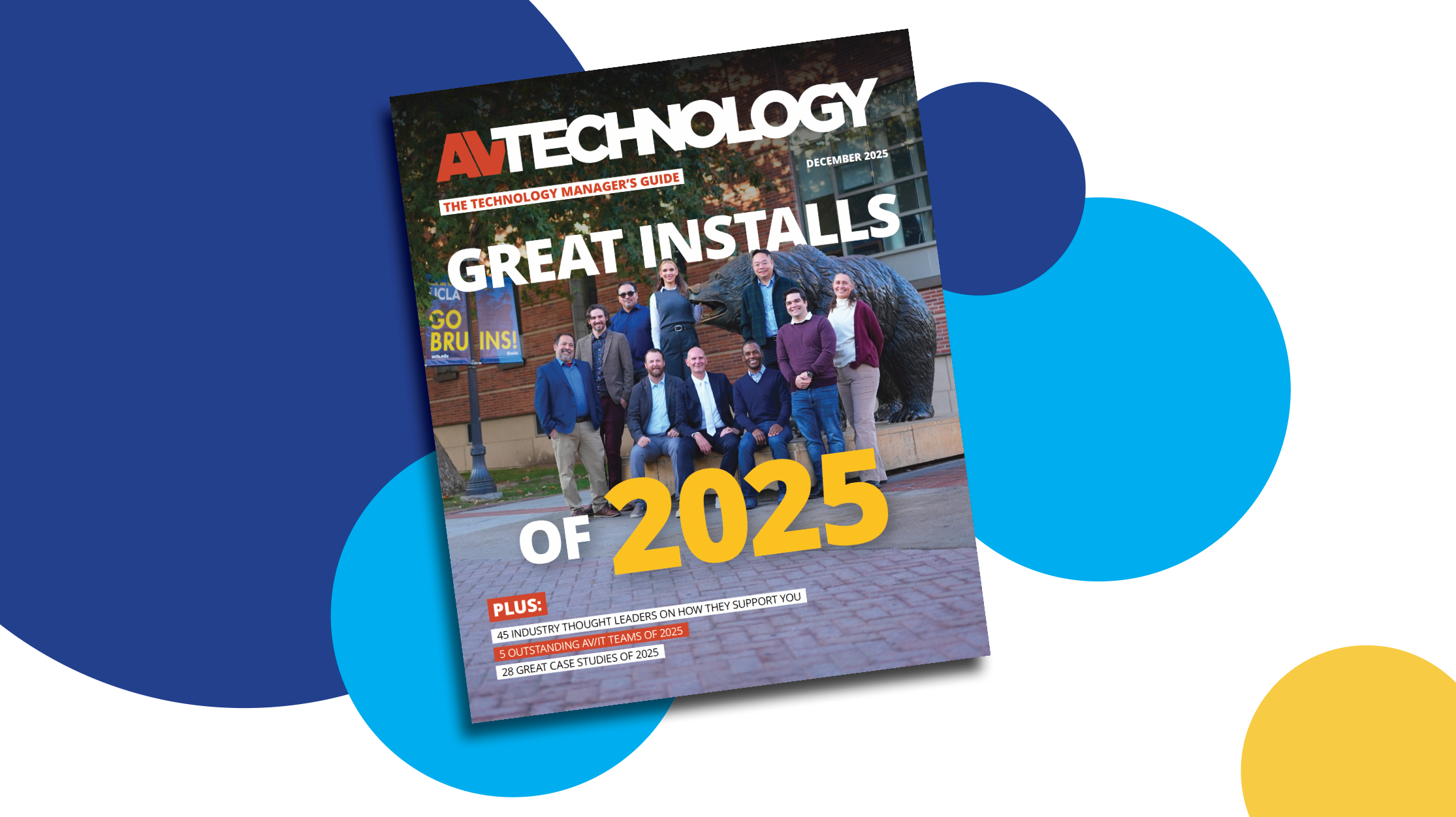On Next-Gen Audio: Shure
Pete Herr, Director of Global Systems Marketing at Shure shares insight into trends and best practices for implementing next-gen audio into meeting spaces and classrooms.

AVT Question: Please share insight and best practices for implementing next-gen audio into meeting spaces and classrooms.
Thought Leader: Pete Herr, Director of Global Systems Marketing at Shure
It’s almost a given these days that when discussing conferencing, we’re discussing conferencing in the hybrid world. Almost all organizations have some form of a hybrid setup, meaning some employees are participating in a meeting from home, while others are participating from the office. This has brought many benefits to employees, but also requires new conversations around how to ensure that employees are having the same positive work experience regardless of location.
A successful conferencing environment is one where devices are easy to set up; collaboration is encouraged; and employees feel valued, productive, and capable." —Pete Herr, Director of Global Systems Marketing at Shure
To achieve an equitable meeting environment, it is critical to develop solutions that enable productive hybrid work and implement these solutions for use across an organization. When hybrid work fails to lead to successful collaboration and meetings, employees are left to handle the consequences: frustration, impacted productivity, hindered business operations, et cetera. Forthcoming research from Shure explores this topic. We found that an unproductive hybrid working environment leads to increased cognitive load for employees; has significant business implications; and increases stress, leading to a lack of productivity.
So how do we set up successful conferencing environments that instead serve to alleviate cognitive load, improve business outcomes, and reduce stress? A successful conferencing environment is one where devices are easy to set up; collaboration is encouraged; and employees feel valued, productive, and capable.
With a high-quality suite of audio devices providing solutions for all participants, regardless of location, we can ensure convenient collaboration for all employees. A solution that offers seamless connectivity, equity, compatibility with leading streaming platforms, and configuration to meet the needs of meeting spaces of all sizes will lead to overall greater productivity and engagement within an organization.
[15 AV/IT Thought Leaders On Streaming]
A daily selection of features, industry news, and analysis for tech managers. Sign up below.

Cindy Davis is the brand and content director of AV Technology (AVT). She was a critical member of the AVT editorial team when the title won the “Best Media Brand” laurel in the 2018 SIIA Jesse H. Neal Awards. Davis moderates several monthly AV/IT roundtables and enjoys facilitating and engaging in deeper conversations about the complex topics shaping the ever-evolving AV/IT industry. She explores the ethos of collaboration, hybrid workplaces, experiential spaces, and artificial intelligence to share with readers. Previously, she developed the TechDecisions brand of content sites for EH Publishing, named one of the “10 Great Business Media Websites” by B2B Media Business magazine. For more than 25 years, Davis has developed and delivered multiplatform content for AV/IT B2B and consumer electronics B2C publications, associations, and companies. A lifelong New Englander, Davis makes time for coastal hikes with her husband, Gary, and their Vizsla rescue, Dixie, sailing on one of Gloucester’s great schooners and sampling local IPAs. Connect with her on LinkedIn.
